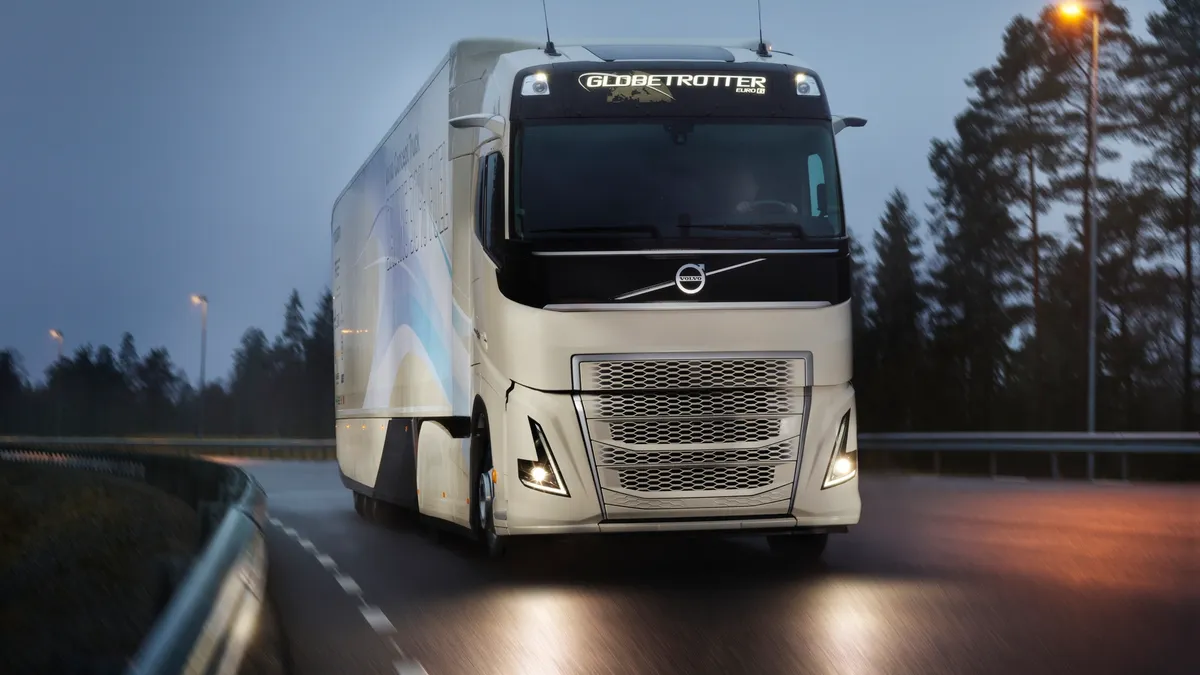Dive Brief:
- An "unprecedented" run on big rigs has extended the backlog for new heavy-duty trucks to nine months, all but assuring supply continues to lag behind demand this peak season, The Wall Street Journal reported.
- The long backlog — the industry standard is about five months — is ironically due to strained manufacturing supply chains: factories are struggling to build trucks fast enough because of delays in getting parts from suppliers, either from production constraints or transportation pressures.
- July marked an all-time record for truck orders by North American fleets (52,000 trucks), according to ACT Research. In the first seven months of the year, 300,000 Class 8 truck orders were placed by such fleets — the largest figure since 2004.
Dive Insight:
Truck owners are ordering big rigs as fast as they can in order to recruit new drivers, acquire new technology, reach better fuel efficiencies and boost capacity — but even that may not be enough to absorb the high demand from shippers, according to an analyst note by Mizuho Securities.
July figures show demand for new trucks is significant. Net orders for Class 8 trucks stand to date at 301,000 units, which represents a nearly 106% year-over-year increase, and the 31,000 trucks produced in July 2018 alone are 36% greater than last year's figures. However, the backlog for these deliveries also rose 153% from the same month last year.
But the high equipment expenses do not necessarily translate to either growing capacity or lower prices in the forecast.
"If you listen to all the trucking conference calls in the second quarter, a lot of fleets said they weren't growing," Kristine Kubacki, a Mizuho Securities analyst, told Supply Chain Dive.
As a result, even though new truck orders and production are ramping up, "we expect retail sales to absorb supply as freight conditions remain very strong," Kubacki wrote in an analyst note last week.
"We still believe this freight cycle is somewhat different than even the strong truck cycle in the last decade on the back of a very strong economy, struggles with implementation of ELDs and supply chain shifts due to e-commerce," Kubacki wrote.















